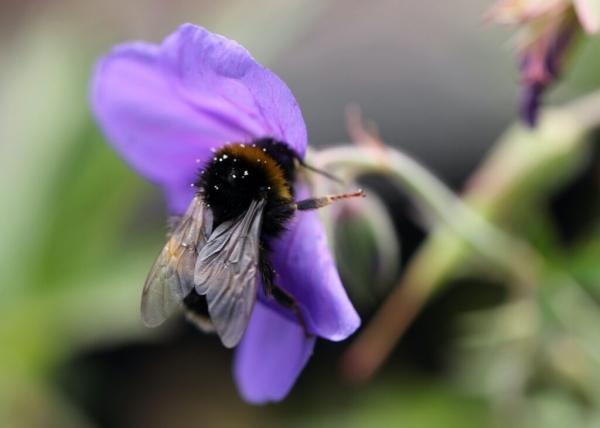Health Canada is currently reviewing regulations for pesticides in Canada, and three UBC researchers say regulators might want to consider what happened in Japan.
A lake in Shimane Prefecture has seen its commercial fishery collapse by more than 90 per cent since 1993, when insecticides known as neonicotinoids were first introduced to the area. It just so happens that zooplankton—the tiny creatures in the water that fish feed on—declined by 83 per cent during the same period.
That’s just one example of the unanticipated ripple effects of pesticides uncovered by UBC ecologists Dr. Risa Sargent, Dr. Juli Carrillo and Dr. Claire Kremen in their review of recent science.
They also found concerning research about glyphosates. Use of this weed-killer has increased 100-fold in recent decades. Because it targets an enzyme that exists only in plants, it was thought to be perfectly safe for animals. However, a study last year showed that it alters the mix of bacteria and microbes in bees’ intestines, while also disrupting their ability to keep hives at the optimum temperature.
Read more at: University of British Columbia
Photo Credit: Sandy Millar via Unsplash


